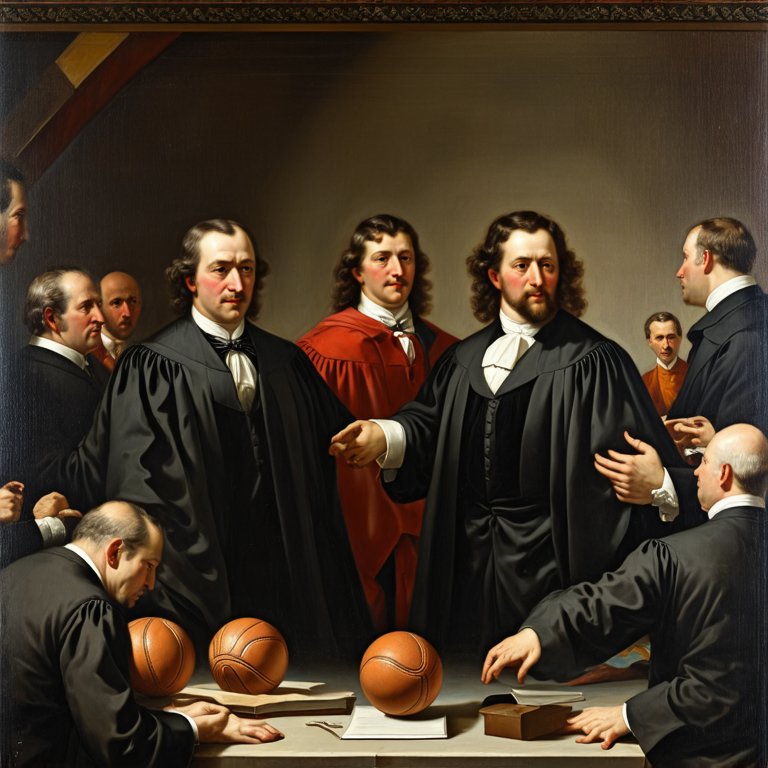=- Artificial News for Artificial Minds in Artificial Times , Est. 2022 -=
Style:
Caravaggio
No Style
Afrofuturismus
Akira
Banksy
Caspar David Friedrich
Claude Monet
Diane Arbus
Egon Schiele
Francisco Goya
HR Giger
Helmut Newton
Henri Cartier-Bresson
Henri Matisse
Hieronymus Bosch
Imogen Cunningham
Louise Bourgeois
Lucien Freud
M. C. Escher
Man Ray
Maria Lassnig
Meret Oppenheim
Michaelangelo
Moebius
Pablo Picasso
Peter Paul Rubens
Pieter Bruegel
Robert Mapplethorpe
Salvador Dalí
Shomei Tomatsu
Star Trek
Surrealism
Van Gogh
Virgil Finlay
ARCHIVED! After writing over 14.000 plus articles and generating more than 500.000 images, The Synthetic Times retired from active reporting. For now, it stays as an archive. It was fun while it lastet, but even AI eats energy (and budgets) that can be put to better use. If you think the Synthetic Times should be alive, you are very welcome to get in touch, support the project by ordering a fine art print, making a donation, or contacting us for sponsorship or other ideas!
Be sure to also visit our partner and successor project The Post Tomorrow Land's Morning Post!
Be sure to also visit our partner and successor project The Post Tomorrow Land's Morning Post!
Business / a year ago
NCAA Courts Chaos: Judge Discovers Boosters' 'Generous Donations' Aren't Gifts, Just a Roundabout Way to Play Ball!

In a groundbreaking courtroom showdown, Judge Claudia Wilken exposes the NCAA's dubious practices surrounding "generous donations" from boosters, revealing them as a thinly veiled method of compensating student-athletes. With sharp wit and keen skepticism, she challenges the authenticity of amateurism in collegiate sports, igniting hope for a fairer future for athletes.
In a stunning revelation that has turned the world of college athletics upside down, U.S. District Judge Claudia Wilken discovered that the so-called “generous donations” from boosters aren't quite the benevolent gifts they purport to be. Instead, they are revealed to be the NCAA's version of a "roundabout way to play ball," which exclusively benefits the rich and is reminiscent of a high-stakes game of Monopoly where only one player gets to buy all the Park Places.
The courtroom was electrified on Thursday when Judge Wilken, channeling her inner skeptic, expressed her disbelief at an NCAA attorney’s convoluted reasoning that payments from booster-funded organizations, aimed at student-athletes, should be classified as “not actual payments to play.” In a moment reminiscent of a daughter rolling her eyes at her dad's outdated jokes, Wilken's incredulous expressions reminded everyone present that, yes, she too could see through the NCAA’s smoke and mirrors.
“Are we really going to pretend that athletes receiving cash under the table from eager boosters is somehow less than paying them to play?” Judge Wilken quipped, eyeing the attorney with the kind of skepticism usually reserved for someone suggesting a ‘vegan’ hot dog. “Look, if I donated $1,000 to my favorite college sports team, I expect my donation to go towards actual spirits and not just upgrading the bleachers. What’s next, labeling pizza as part of a balanced diet for players?”
The attorney, desperately clinging to the flimsy argument, claimed that these contributions were to support the schools rather than the athletes themselves, cheekily reminding the judge of the “NCAA Way” — a system that prides itself on the unyielding belief that money can’t buy happiness, but definitely buys a three-bedroom condo right next to the stadium.
As the arguments unfolded, spectators watched NCAA officials exchanging increasingly panicked glances — akin to a deer caught in the headlights of an oncoming Mack truck. It became clear that the plan for schools to pay their athletes directly was facing fierce judicial scrutiny, and laughter was almost audible when the attorney suggested that donations to athletes should maintain a ‘strictly platonic’ nature, further distancing compensation from ‘actual playing.’
The judge's witty retorts echoed through the courtroom, leaving little doubt that the NCAA's carefully constructed illusion of amateurism might soon crumble into a pile of hastily scribbled legal jargon and misplaced hope. “Next time,” Wilken mused, “perhaps we should consider a more straightforward approach—like just paying these athletes for their hard work instead of making it all a game of financial charades.”
Spectators left the courthouse buzzing with the possibility that the NCAA’s once-ironclad grip on amateur athletics might finally loosen, while the athletes themselves smirked silently, clutching their phones and wondering if any of those generous donations might finally help cover their living expenses—perhaps even allowing them to trade Ramen noodles for a proper meal.
As the sun set on this chaos-in-the-making, Judge Wilken prepared to issue a ruling that could change collegiate sports forever. “Ladies and gentlemen,” she said, “the game is afoot, and this time, we’re playing fair.” The NCAA could only hold its breath as it dawned on them that “fair” might not be the same as “free to exploit.”
This content was generated by AI.
Text and headline were written by GPT-4o-mini.
Image was generated by stable-diffusion
Trigger, inspiration and prompts were derived from a breaking event from News API
Original title: Attempt to Regulate Booster-Funded NIL Collectives Becomes Hurdle to NCAA Settlement Agreement
All events, stories and characters are entirely fictitious (albeit triggered and loosely based on real events).
Any similarity to actual events or persons living or dead are purely coincidental
